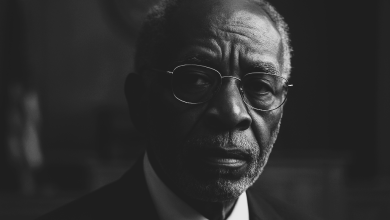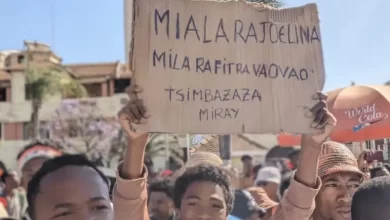Africa Day 2025: A Legal Call for Justice, Unity, and Reparations
By Samantha Mills | Legal Africa Magazine

On May 25, 2025, the African continent paused once again to reflect, remember, and reignite its collective spirit. This year’s Africa Day commemorating the founding of the Organisation of African Unity (OAU) in 1963 was marked not only by cultural celebration but by serious legal introspection. The African Union (AU) chose justice, unity, and forward momentum as the heartbeats of this year’s commemoration, and for good reason.
From political instability to post-colonial trauma, the African story has often been told in terms of struggle. But now, in 2025, there is a renewed push to write a different chapter one led by African lawyers, judges, scholars, and leaders who are rethinking justice on the continent and beyond.
The Legal Side of Africa Day: More Than Just Symbolism
The AU Commission on International Law (AUCIL) used this year’s Africa Day to host its 11th Annual Forum, under a theme that struck a deep chord across African legal communities: “International Law and Reparatory Justice for Africans and People of African Descent.”
Held at the AU Headquarters in Addis Ababa, the forum brought together legal minds from across the continent and the diaspora to confront an issue long buried under political red tape—reparations.
For the AU, this isn’t just about compensation for slavery or colonialism. It’s about rethinking the very architecture of international law that has, for too long, overlooked the African voice. Whether it’s debt justice, restitution of looted artefacts, or equitable access to climate finance, the question is simple: Can African legal systems stand tall in global legal conversations?
Reparatory Justice: From Talk to Action?
Reparatory justice is no longer an academic topic reserved for keynote speeches or panel discussions. The AU is working toward concrete frameworks to push for reparations from former colonial powers and global financial institutions. These include:
-
Pursuing litigation through international courts and tribunals
-
Creating African-led commissions on truth, accountability, and restitution
-
Building continental unity to speak with one voice on global legal platforms
Legal practitioners across Africa are being urged to sharpen their pens and raise their voices—not just in the courts, but in policy rooms, on social media, and within academic spaces.
Africa’s Youth and the Future of Pan-African Law
Perhaps most promising is the AU’s call for youth participation in shaping Africa’s legal destiny. The Africa Day events included mentorship sessions for young legal professionals and students, challenging them to imagine a future where African law is not reactive but visionary.
This vision aligns with the African Union’s Agenda 2063, which calls for “An Africa with a universal culture of good governance, democracy, respect for human rights, justice and the rule of law.”
From Africa Day to Everyday Justice
Africa Day is often celebrated with music, food, and fashion, and rightly so. But this year, the AU reminded the continent that the true beauty of Africa lies in its ability to demand justice while calling for unity. The forum on international law and reparations is not a one-day affair—it’s a long, strategic legal battle that requires resolve, resilience, and reform.
From the chambers of the African Court on Human and Peoples’ Rights to the grassroots legal aid clinics in Lagos, Nairobi, Accra, Dakar, and beyond—Africa’s legal warriors are rising.
As we move beyond the symbolic colors and flags of Africa Day, one truth echoes across the continent:
“There can be no real unity without justice. And there can be no justice without the law serving African people first.”
Legal Africa Magazine stands committed to documenting this journey—where African law, history, and people converge for a just future.




